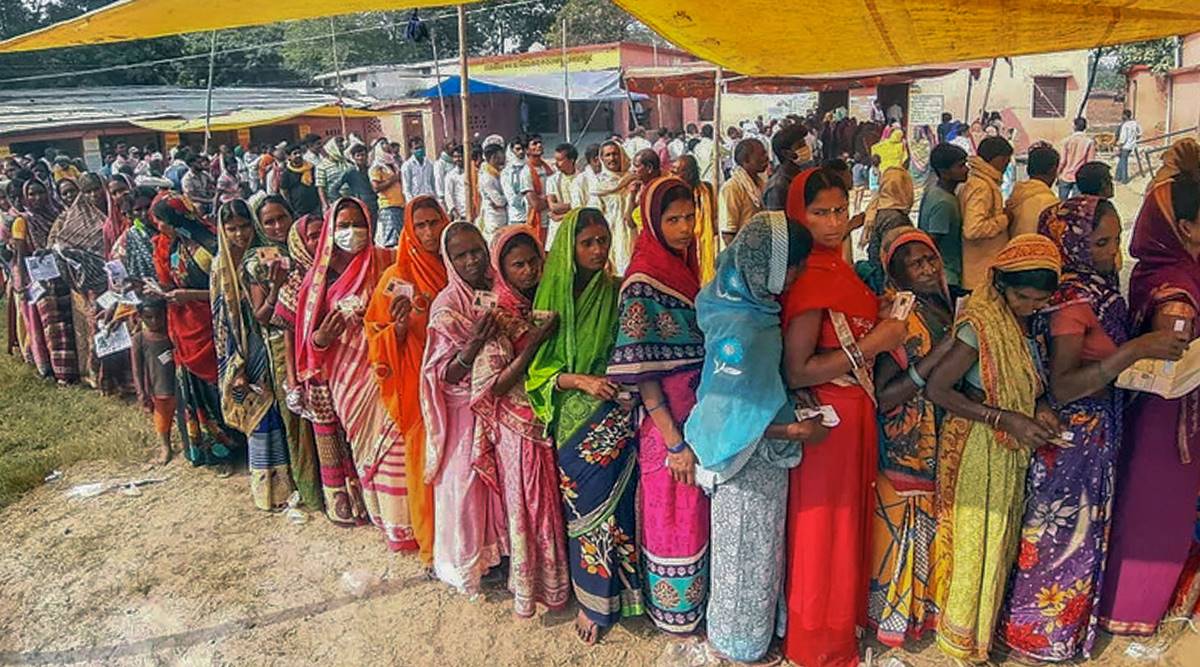BJP hopeful of one-nation-one-election ballast to its poll prospects

BJP hopeful of one-nation-one-election ballast to its poll prospects
The Bharatiya Janata Party (BJP) sees Prime Minister Narendra Modi’s initiative to promote the ‘one-nation-one-election’ concept as a potential game-changer for the upcoming Lok Sabha elections. The party believes that this concept, which aims to synchronize the timing of state and national elections, has the potential to capture the public’s imagination and reshape the political landscape.
The government’s recent decision to establish a committee under former President Ram Nath Kovind to examine the feasibility of simultaneous elections has given significant weight to this issue.
It has the potential to become a key political agenda in the lead-up to the Lok Sabha elections, especially considering that it follows the announcement of a “special session” of Parliament scheduled between September 18-22. While the official agenda for the parliamentary session has not been released yet, the timing of these developments has sparked speculation about the possibility of early Lok Sabha polls.

Despite uncertainties about how the ‘one-nation-one-election’ issue will unfold and whether the government will address it during the upcoming parliamentary session, most BJP leaders appear confident about its potential implications for the party.
The BJP has often faced challenges in state polls compared to its performance in Lok Sabha elections, and party leaders believe that holding simultaneous elections at both levels will allow national issues and the ‘Modi factor’ to take center stage, diminishing the influence of regional agendas and leadership.
Typically, regional parties, rather than the main opposition party, Congress, have proven more resilient and successful in challenging the BJP. Political experts suggest that these regional parties may face a disadvantage if assembly and Lok Sabha elections are conducted simultaneously, as national issues are likely to have a greater impact. An example cited is the 2019 Odisha elections when the BJP’s support in the assembly polls was six percent lower than in the Lok Sabha elections, despite both being held concurrently.
It’s worth noting that the BJP had previously advocated for simultaneous elections under the leadership of Atal Bihari Vajpayee and L.K. Advani. While Vajpayee was the Prime Minister, Advani, as his deputy, championed the idea, but it did not gain traction as other parties were lukewarm to the proposal. At that time, the BJP was not as dominant as it later became under Narendra Modi’s leadership.
The BJP had previously included a promise related to simultaneous elections in its manifesto for the 2014 Lok Sabha elections. The party had pledged to work with other political parties to establish a method for holding both Assembly and Lok Sabha elections simultaneously. The rationale behind this proposal was to reduce election expenses for political parties and the government while ensuring greater stability for state governments.
Prime Minister Narendra Modi began actively advocating for simultaneous elections after leading the BJP to a majority in the Lok Sabha in 2014. His first public mention of this concept occurred during a Diwali interaction in 2016. This set the stage for further discussions and deliberations on the matter, which generated mixed opinions.
Modi’s push for simultaneous elections followed informal discussions on the topic during an all-party meeting in March of the same year. At that time, he called for a broader debate on the issue, acknowledging that many politicians, including some from the opposition, privately supported the idea but were hesitant to publicly endorse it for political reasons.
Prime Minister Narendra Modi has articulated his arguments in favor of holding simultaneous elections in India, citing two primary reasons: the enormous public expenditure associated with frequent elections and the negative impact on development projects.
He has highlighted that the Model Code of Conduct during elections prohibits the announcement of new development initiatives, and the deployment of senior officials for election duties disrupts ongoing projects. Additionally, Modi has argued that frequent elections often lead to coarser political discourse and public debate, as politicians prioritize electoral considerations over other issues.
After returning to power in 2019, Modi convened an all-party meeting to discuss the idea of simultaneous elections. However, some major opposition parties, including the Congress and the Trinamool Congress, boycotted the meeting, characterizing the proposal as anti-democratic and detrimental to federalism.
While the BJP has the necessary majority in the Lok Sabha to amend the Constitution for simultaneous elections, it lacks a majority in the Rajya Sabha. Achieving the required two-thirds majority in both houses of Parliament would necessitate support from unexpected quarters, as most parties within the INDIA bloc oppose the idea.
Prime Minister Narendra Modi has articulated his arguments in favor of holding simultaneous elections in India, citing two primary reasons: the enormous public expenditure associated with frequent elections and the negative impact on development projects. He has highlighted that the Model Code of Conduct during elections prohibits the announcement of new development initiatives, and the deployment of senior officials for election duties disrupts ongoing projects. Additionally, Modi has argued that frequent elections often lead to coarser political discourse and public debate, as politicians prioritize electoral considerations over other issues.
After returning to power in 2019, Modi convened an all-party meeting to discuss the idea of simultaneous elections. However, some major opposition parties, including the Congress and the Trinamool Congress, boycotted the meeting, characterizing the proposal as anti-democratic and detrimental to federalism.
While the BJP has the necessary majority in the Lok Sabha to amend the Constitution for simultaneous elections, it lacks a majority in the Rajya Sabha. Achieving the required two-thirds majority in both houses of Parliament would necessitate support from unexpected quarters, as most parties within the INDIA bloc oppose the idea.



